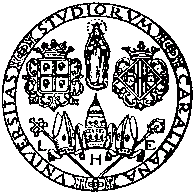

EMOTIONAL DEVELOPMENT AND SEXUAL
EDUCATION IN SECONDARY SCHOOLS
Registred At The 7th European Training Consortium In Public Health Summer Course Cagliari-Italy, August 4-22, 1997
Dipartimento di Igiene e Sanità Pubblica
Università degli Studi di Cagliari
Background. In Europe and in the USA the decrease of teenage pregnants is a specific objective of public health; even in European countries where abortion is legal, clandestine abortions still take place. Many adolescent problems can have roots in an insufficient and incorrect emotional support in sexual education. In the school, which is the second educational agent after the family, sexual education is almost absent and the interventions are often limited to the facts of anatomy and physiology or to contraception information or to Aids prevention etc.
This project will establish a program for the three years of secondary school in which sexual education includes emotions, feelings and sensations according to the demands at each age group.The continuous educational activities will avoid the concentration of sexual information in a few lessons given by the science teacher, normally in the third year of secondary school and regarding only physical aspects.
Goal. The goal is to increase the level of sexual wellbeing in adolescents.
Objectives. The objectives are:
 to improve knowledge and attitudes in sexual behaviour.
to improve knowledge and attitudes in sexual behaviour.
 to improve the relationships between adolescents and parents.
to improve the relationships between adolescents and parents.
Methodology.This pilot project will be carried out in the secondary school of Sant'Elia, a suburban neighbourhood of Cagliari with social and economic problems and a high level of teenage pregnancies. This is going to be a quasi-experimental study, three years in duration. An intervention program will be implemented in Sant'Elia school (cases) and another school with similar characteristics will be chosen as a control.
1º Stage. The first stage will be to establish a team which comprises of :
 health promotion researchers;
health promotion researchers;
 psycolgists;
psycolgists;
 sociologists;
sociologists;
 family advisory gynecologists;
family advisory gynecologists;
 teachers.
teachers.
Team activities will concern a refresher course for teachers at the beginning and during the project; the suggestions about contents and methodology that will be perfected with teachers according the need of pupils, meetings with parents.
The control school will be chosen by questionnares on social and economic characteristics and given to Sant'Elia and another secondary school pupils aged from 11 to 14 years and on the results of a qualitative research among these adolescents.
2º Stage. During the second stage the program (intervention) will be designed. The program will be established according to the needs of pupils and the advice of specialists. To know the specific demands of each age, that often are not manifested as demands, questionnaires of mental representations, open interviews,talks, role playing, drawings etc.will be used. The results of these activities will be socialised (notified to all class) and will be used to define the priorities among emerged situations.
 teacher's lessons;
teacher's lessons;
 specialists interventions;
specialists interventions;
 interviews conducted from pupils to adults or peers;
interviews conducted from pupils to adults or peers;
 games;
games;
 physical exercises;
physical exercises;
 dramatisations;
dramatisations;
 drawings etc.
drawings etc.
After each activity tests will evaluate the improvements. Hoperfully the results of all the activies will be put together in a final poster and considered in the global final evaluation of each pupil.
The specific contents could be:
3º Stage. The third stage will include the evaluation. The evaluation process will measure the differences between knowledge and sexual attitudes in participants and not participants of the project with a questionnaire given to Sant'Elia third classes students and to control school students.
Constraints could be teachers fears, families suspicions and the information sharing between cases and controls school.
A good opportunity is that Sant'Elia school are carrying out projects on other themes and researchers have built up a relationship to work with teachers.
Overall expectations are to improve skills and enterprises in teachers and to increase the demand of sexual education by family and finally, to decrease taboos and to raise consciousness and self-confidence.